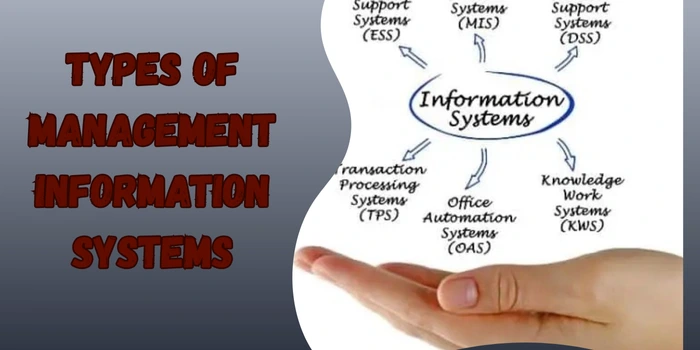
A Management Information Systems (MIS) degree provides a powerful combination of business information and technological expertise, making graduates highly flexible in today’s virtual-driven workplace. One key advantage is the capability to bridge the distance between IT and business and permit professionals to analyze information, improve tactics and help strategic decision-making. MIS graduates benefit from skillability in database control, structures analysis and commercial enterprise analytics and skills, which might be incredibly valued across industries. Professional opportunities are numerous and developing. Graduates can pursue roles together as business analysts, IT consultants, systems analysts, database administrators or venture supervisors. With the upward shove of information-driven decision-making and MIS specialists are also sought in regions like cybersecurity, cloud computing and digital transformation initiatives. The diploma no longer only gives robust activity protection and competitive salaries but also gives a platform for long-term career growth in both technical and managerial tracks.
Table of Contents
ToggleWhat Are Management Information Systems?
Management Information Systems (MIS) is the look at and practice of using information technology, statistics and control techniques to aid decision-making, improve performance and streamline enterprise tactics. At its core, MIS combines laptop systems, software programs and commercial enterprise techniques to provide companies with the tools needed for effective management. In easy terms, MIS specialists work at the intersection of business and technology and ensure that organizations have the right statistics at the proper time to make better decisions.
Why Pursue a Management Information Systems Degree?
A Management Information Systems Degree opens doorways to multiple professional alternatives in both IT and commercial enterprise. The field is developing unexpectedly due to the fact that businesses throughout industries, finance, healthcare, retail, and authorities need professionals who can manage statistics and align it with business objectives.
Key reasons to consider a Management and Information Systems degree include:
- High Demand: Global agencies want MIS experts to analyze massive data, put in force ERP systems and control IT infrastructure.
- Versatility: A Management Information Systems Degree Online prepares you for roles that find it irresistible, supervisor, systems analyst, business Genius professional and cybersecurity consultant.
- Lucrative Salaries: Graduates with a Management of Information Systems heritage often earn competitive salaries because of the high-cost nature of their capabilities.
- Flexibility in Learning – Pick an inclusive Management Information Systems Online Degree to make it smooth for working professionals to upskill without leaving their jobs.
For students and specialists who need to explore extra gear, systems, automation and professional growth in the era and business platforms like Power System Cart provide treasured insights, resources and guides to stay in advance in the virtual financial system.
Why Study the Management Information Systems Major?
Pursuing a Management Information Systems Major equips students with both technical and managerial skills. Unlike pure computer science, MIS focuses on applying technology to solve business problems. A Degree In Management Information Systems covers subjects like database management, information security, business analytics, and project management. Graduates with a Management of Information Systems Degree are highly sought after because they understand both IT infrastructure and organizational goals.
Why Is Management Information Systems Important in Today’s Business World?
Businesses generate large amounts of data each day. Besides the right systems in the area, these statistics might continue to be unorganized and underutilized. Management Information Systems play a critical role by:
- Collecting and storing data in structured systems.
- Imparting managers with well-timed reviews for decision-making.
- Improving operational efficiency through automation.
- Improving communication across departments.
- Making sure of information protection and compliance.
What Jobs Are Available in Management Information Systems?

There are numerous Management Information Systems jobs throughout industries. MIS graduates and professionals can work as:
- IT Managers
- Systems Analysts
- Database Administrators
- Business Intelligence Analysts
- Cybersecurity Specialists
- Project Managers
- Network Administrators
The demand for MIS professionals is expected to increase as agencies increasingly rely on data-driven answers.
What Is the Management Information Systems Salary Potential?
The Management Information Systems salary varies depending on schooling, expertise and place. Generally, access-degree jobs start around $55,000 to $70,000 per year. IT administrators and mid-stage managers may make between $90,000 and $120,000 every year. Senior MIS specialists with specialised understanding in Information Security Management Systems or organization stage software might also earn nicely over $150,000 yearly. Consistent with industry reviews, the Information Systems Management salary always ranks among the highest in IT and enterprise-related careers.
What Is the Role of a Management Information Systems Major?
A Management Information Systems major is typically pursued by undergraduate students who need to specialise in both commercial enterprise control and the records era. This discipline teaches college students to analyze commercial enterprise requirements and format statistical systems that meet organizational needs.
Students pursuing a Management Information Systems Bachelor’s Degree will regularly have a look at:
- Database Management
- Networking
- Systems Analysis and Design
- Cybersecurity
- Business Analytics
- Programming for Business
What Degrees Are Available in Management Information Systems?
There are multiple degree paths for students and professionals interested in MIS:
- Degree in Management Information Systems: Usually a bachelor’s diploma that introduces college students to the sphere.
- Management Information Systems Master’s Degree: For folks who want advanced information.
- Master of Science in Management Information Systems (MS in Management Information Systems): A specialised technical and managerial application.
- MBA Management Information Systems: Commercial enterprise-focused with MIS specialization.
- PhD in Management Information Systems: For research and academic careers.
- Master of Management Information Systems: Another advanced degree for professional growth.
Some students also pursue an Online Management Information Systems Degree for flexibility.
Can You Get an Online Masters in Information Systems?

Yes, many universities now offer an Online Masters in Management Information Systems and making it easier for working professionals to balance their careers with higher schooling. Those programs are designed with flexibility in mind and permitting students to pursue advanced studies without disrupting their jobs. With the aid of enrolling in a Masters in Management Information Systems Online course, students gain in-depth knowledge of key areas which include cybersecurity, commercial enterprise talent, data analytics, database control and IT task management. A good way to prepare graduates for in-demand positions is to find irresistible managers, systems analysts and information safety professionals; the curriculum frequently blends technical understanding with leadership and strategic decision-making abilities. University students may additionally talk with peers, attend lectures and finish assignments from any region thanks to the benefit of online learning, which makes it a sensible investment in professional improvement.
Security Information and Event Management Systems
Organizations increasingly depend upon Best Security Information and Event Management Systems (SIEM) to display, discover and respond to cyber threats in real-time. These systems integrate with Management Information Systems to offer superior security analytics and compliance tools.
Examples include:
- Splunk
- IBM QRadar
- ArcSight
- Microsoft Sentinel
What Internships Are Available in Management Information Systems?
Students pursuing Management Information Systems internships can gain valuable real-world experience by making use of classroom information in practical enterprise environments. These possibilities frequently involve working with IT departments, helping with database diagrams, helping with cybersecurity tasks or running enterprise intelligence projects that help groups make records-driven selections. Interns may benefit from exposure to structure analysis, company software programs and network management, which builds technical and analytical skills particularly valued in today’s task marketplace. Past technical understanding, internships permit college students to reinforce teamwork, conversation and problem-solving skills. Moreover, finishing a management facts structures internship can function as a gateway to future professional opportunities, since many organizations decide to hire interns for full-time Management Information Systems Jobs after commencement. This makes internships a vital step in the direction of building a successful MIS profession.
What Role Does the HIMSS Play?
The Healthcare Information and Management Systems Society is a leading international organisation dedicated to advancing healthcare through the effective use of information and management systems. HIMSS plays a critical role in selling innovation, driving virtual transformation and setting industry-wide requirements for Health Information Management Systems. With the aid of supporting healthcare experts, hospitals and generation vendors, the agency fosters the adoption of current IT solutions that improve patient outcomes, enhance scientific decision-making and increase average health facility efficiency. Similarly to supplying thought leadership, HIMSS offers valuable sources together with research, educational applications, expert certifications and international meetings in which healthcare experts share insights on rising technologies like digital health statistics, telemedicine and AI-pushed analytics. With its focus on enhancing the protection, satisfaction and accessibility of healthcare globally, HIMSS continues to shape the destiny of virtual fitness and ensures that the era serves as a powerful device for better patient care and device overall performance.
Future Trends in Management Information Systems
As businesses adopt advanced technologies, the future of Management Information Systems will include:
- Artificial Intelligence integration.
- Big Data analytics for decision-making.
- Cloud-based MIS solutions.
- Enhanced cybersecurity through Information Security Management Systems.
- Greater reliance on automation and machine learning.
Those tendencies will hold to create opportunities for professionals with advanced tiers like a Master of Science in Management Information Systems, an MBA Management Information Systems or a PhD in Management Information Systems.
Benefits of an Online Management Information Systems Degree
One of the maximum appealing preferences for college students today is a Management Information Systems Degree Online. The advantages encompass:
- Flexibility: You no longer have to give up your present work to study.
- Cost-effectiveness: Compared to conventional on-campus choices, online packages often have substantially decreased fees.
- Global Networking: Students from exceptional parts of the arena collaborate on projects and enrich the learning experience.
- Career Advancement: A Management Information Systems online degree enables professionals to upskill quickly and apply new knowledge immediately in the workplace.
How long does it take to complete an Information Systems Management Degree?
A degree Management Information Systems typically takes approximately four years to finish if pursued as a full-time bachelor’s program. This length may additionally vary depending on the institution, switch credit or whether or not the pupil is enrolled full-time or part-time. For the ones pursuing an Information Systems Management online degree, the timeline may be more flexible, with some elevated applications allowing completion in as little as two to three years. If a scholar continues in the direction of a masters in management information systems, that typically calls for an additional one to 2 years. Moreover, numerous faculties offer nighttime or part-time classes, which extend the schedule but offer working individuals flexibility. In well-known, the length is decided by way of this system’s graph, the tempo of the scholars and whether or not the diploma is being earned online or on campus.
Career Opportunities with a Management Information Systems Degree
A Management of Information Systems qualification can lead to worthwhile careers in diverse industries. A few top roles encompass:
- IT Project Manager: Oversees generation projects from making plans to implementation.
- Database Administrator: Manages and secures organizational data.
- Business Analyst: Identifies commercial enterprise problems and shows IT-pushed solutions.
- Cybersecurity Specialist: Protects structures from cyber threats.
- Chief Information Officer (CIO): Leads the complete IT approach of an organization.
Graduates with a Management Information Systems Masters often progress to senior-level roles, guiding corporations in virtual transformation.
What Are the Challenges in Implementing MIS?
No matter its blessings, imposing a control records system is not always clean. Organizations can also face:
- High Costs: Putting in place infrastructure and schooling personnel may be luxurious.
- Resistance to Change: Employees may additionally hesitate to adopt new structures.
- Data Security Risks: Cyberattacks can compromise sensitive statistics.
- Integration Issues: Combining MIS with present systems may be complicated.
Addressing these challenges requires the right planning, cybersecurity measures and ongoing education.
Specialized Types of Management Information Systems

There are several specialized MIS fields, including:
- Health Information Management Systems: Used by hospitals and healthcare companies to manipulate patient data and ensure compliance with policies.
- Laboratory Information Management Systems: Structures designed to control lab samples, experiments, and research records.
- Product Information Management Systems: A Tool utilized by corporations to centralize and arrange product data for marketing, sales and e-commerce.
- Human Resource Management Information Systems: HR-focused systems that manage employee records, payroll, benefits and overall performance opinions.
Business Management Information Systems: Generalized systems that support strategic choice-making across all departments.
How Does MIS Support Business Automation?
With businesses moving closer to Business Automation and AI-pushed tactics, MIS integrates with cutting-edge tools like gadget learning, statistics analytics and employer automation structures. For instance:
- Automated Reporting Systems: Generate real time insights without manual intervention.
- Predictive Analytics: Forecast income, risks, and customer behavior.
- Workflow Automation: Streamlines repetitive responsibilities, saving time and decreasing expenses.
This makes MIS a core detail in attaining virtual transformation.
FAQs
What Are Management Information Systems?
Management information systems (MIS) are organized systems that collect, save, and examine information to assist decision-making, streamline operations, and improve performance within groups.
What subjects are covered in a Masters Management Information Systems program?
A Master’s degree in management records systems typically covers topics such as database management, cybersecurity, business intelligence, data analytics, structured query, and IT project management.
What Are Management Information Systems used for in companies?
They’re used for coping with facts, generating reviews, enhancing verbal exchange, helping decision-making, and automating workflows.
Is a Master's Management Information Systems degree worth it?
Yes, a Master’s management records structures program can lead to high-paying roles in IT control, information analysis, consulting, and structures administration.
What Are Management Information Systems examples in real life?
Examples include payroll structures, stock control structures, patron courting control (CRM) and organisation resource planning (ERP).
How much does a Master's Management Information Systems program cost?
The price varies by university, but a Masters management statistics structures degree normally stages from $20,000 to $60,000.
